[State of our world] The world will be very different from the one we're used to
In a changed world post-pandemic and against the backdrop of the war in Ukraine, Asia will face pressure from competing minilateral coalitions amid the breakdown of multilateralism and the weakening global and regional institutions. This time, it may not be so easy not to take sides, says Professor C. Raja Mohan. This is the second in a series of four articles contemplating a changing world order.

As the conflict between the West on the one hand and China and Russia on the other continues to sharpen, the biggest victim has been multilateralism and the faith that international institutions will gain ground amid growing global challenges. Asia is emerging as the principal theatre of contestation between the world's two strongest powers - the US and China. The recent bout of US-China tensions over Taiwan is only one part of this conflict.
The unexpected war in Ukraine, which was preceded by the unveiling of an alliance with "no limits" and "no 'forbidden' areas" of cooperation by Presidents Xi Jinping and Vladimir Putin, is adding to the challenges of preserving the efficacy of global and regional institutions that had seen much progress in recent decades.
The absence of great power conflict since the end of the Cold War has lulled the thinking in most of the world's chancelleries into believing that harmony among the major powers was a permanent state of global affairs. On the economic front, the mantra of globalisation hypnotised us into betting that natural commercial conflicts among major powers were about the past rather than the future.
On the technological front, we were confident that the new technological revolution, especially in the digital domain, would accelerate the creation of a world without borders. On the institutional front, we believed that the emerging global and regional institutions were capable of managing and limiting the conflict among powers. On all four fronts, these expectations have turned out to be unrealistic.
The collapse of the Soviet Union in 1991 and the demise of the Cold War with it, however, produced illusions of the UN as a supranational organisation that could define the terms of a new global order.
International institutions no longer fit for purpose
The greatest symbol of the collective in world politics - the United Nations (UN) - is struggling to deal with the great power rivalry. Unlike the League of Nations, the UN was never conceived as an instrument of collective security. It was premised instead on the idea of a five power concert at the end of the Second World War in 1945. The idea was that the "five policemen" - the US, the UK, France, Russia, and China - would collaborate to counter any aggressors and preserve order in the international system.

That hope vanished quickly as the allies during the final phase of the Second World War - the US and the Soviet Union - turned enemies and launched the Cold War by the end of the 1940s. The collapse of the Soviet Union in 1991 and the demise of the Cold War with it, however, produced illusions of the UN as a supranational organisation that could define the terms of a new global order.
The illusion was rooted in the belief that the "unipolar moment" - of American domination in the 1990s - would endure forever. Post-Soviet Russia was catching its breath and China was not strong enough to challenge the West in the 1990s.
If the US squandered the unipolar moment in a series of reckless military adventures, differences inevitably arose between the major powers. The return of a revanchist Russia and the rise of an assertive China meant Moscow and Beijing would not simply defer to the US on all international issues, but would pursue their own interests.
As divergences between major powers translated soon into conflicts, there was no way of sustaining the UN Security Council (UNSC) as a credible collective institution. The problem is not limited to the UNSC. The challenges are even equally stark in other UN-affiliated institutions. The World Health Organization (WHO), for example, failed to cope with its mandate amid the sharp divisions between Beijing and the West on the management of the Covid-19 pandemic that had its origins in China.
There was a growing conviction in Washington that China has weaponised economic interdependence to gain a unilateral advantage in a system designed and led by the US.
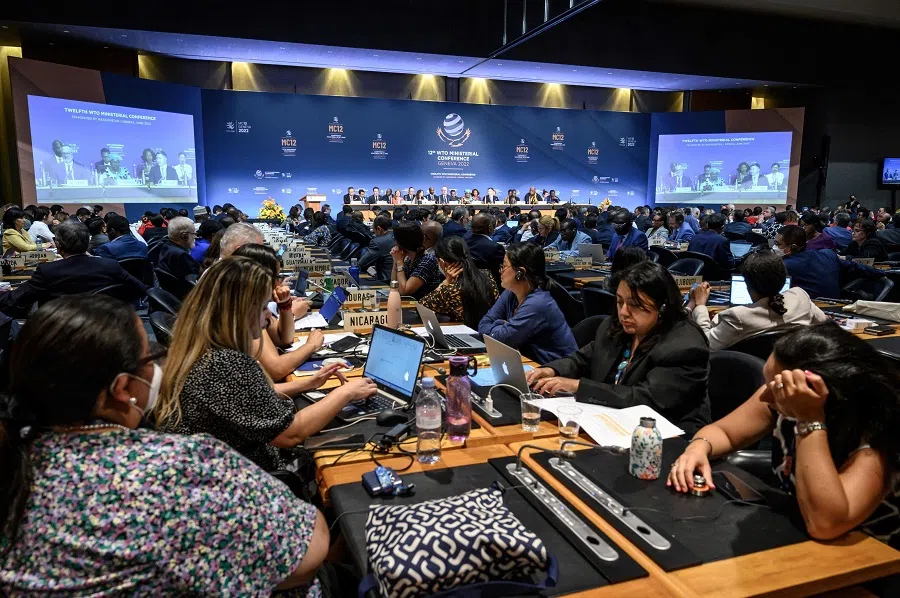
The World Trade Organization (WTO) was established in 1995 with much more sweeping ambition - both in its scope and institutional structure - than its predecessor GATT (General Agreement on Trade and Tariffs) which was formed in 1947. The entry of communist China into the WTO in 2001 was hailed as a new era of economic globalisation. The rapid expansion of the Chinese market and its integration with the Asian and global economy heralded an era of expanding global trade.
But within two decades of China's entry into the WTO, the core proposition that the new global economic order would benefit all peoples in the world came under big political stress - not among the traditional critics in the global south, but the developed north.
The political mobilisation of economic discontent in the West inevitably threatened the WTO-centred global order. There was a growing conviction in Washington that China has weaponised economic interdependence to gain a unilateral advantage in a system designed and led by the US.
The gathering technological race among the great powers is bound to create two parallel and exclusive systems.
This frustration added an economic edge to the US conflict with Beijing, which in turn, saw a new US determination to "decouple", at least partially from the Chinese economy. No global economic institution can survive intact if the two largest entities within it begin to quarrel over the terms of commercial engagement.
The internet, once imagined as an institution that will transcend the traditional state system, is now drifting towards what some are calling the "splinternet". The idea that the new technological revolution will help connect and integrate markets is now yielding place to the creation of competing efforts - from the development of the fifth generation wireless technology (5G) to the manufacture of advanced semiconductor chips. The gathering technological race among the great powers is bound to create two parallel and exclusive systems.
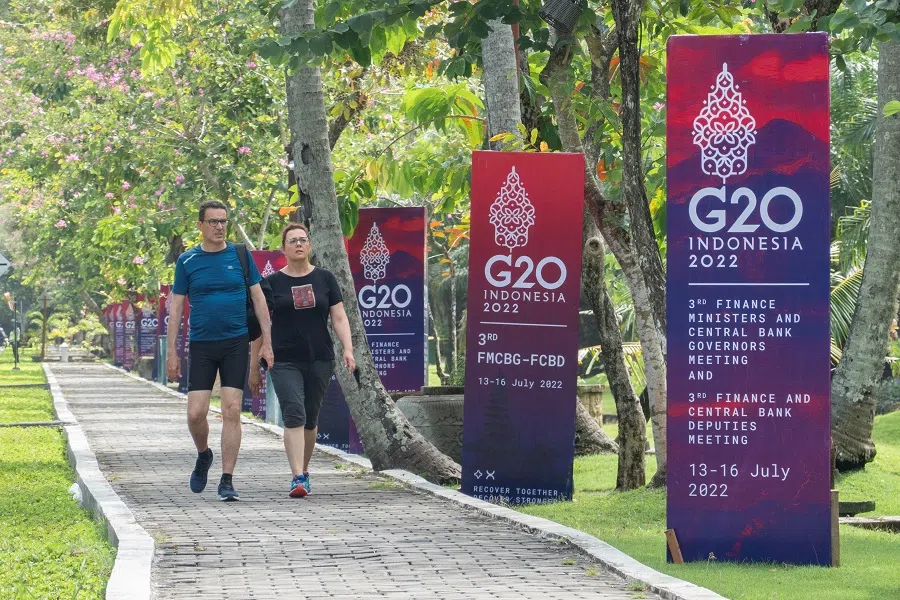
The creation of new collective institutions like the G20 to deal with the global economic crisis in 2008 did not and could not generate solutions amid the growing divergence between the great powers. The Russian invasion of Ukraine and the Western sanctions that followed are now making it hard even to get all the leaders of the G20 into the same room.
Europe, which has seen the emergence of the strongest regional institutions in the last three decades, has been shaken to the core by the Russian invasion of Ukraine.
Asia a principal theatre of contestation
Asian leaders had hoped until recently that they could avoid making choices between the great powers and wished that wiser counsels will prevail among the major powers. But those hopes have been dashed, thanks to the growing confrontation among the major powers.
Preserving the gains from globalisation over the last four decades, protecting the progress in regionalism, and nurturing a measure of autonomy in the great power conflict, will be great challenges for both Europe and Asia in the coming years.
Europe, which has seen the emergence of the strongest regional institutions in the last three decades, has been shaken to the core by the Russian invasion of Ukraine. As Russia seeks to revise the European security architecture, more European countries are looking to the protection of the US-led North Atlantic Treaty Organization (NATO). Although there is greater transatlantic and European unity in confronting the dangers presented by the Russian aggression in Ukraine, political cracks in the anti-Russian coalition are showing up.
Meanwhile, China and Russia are building their own regional and global institutions.
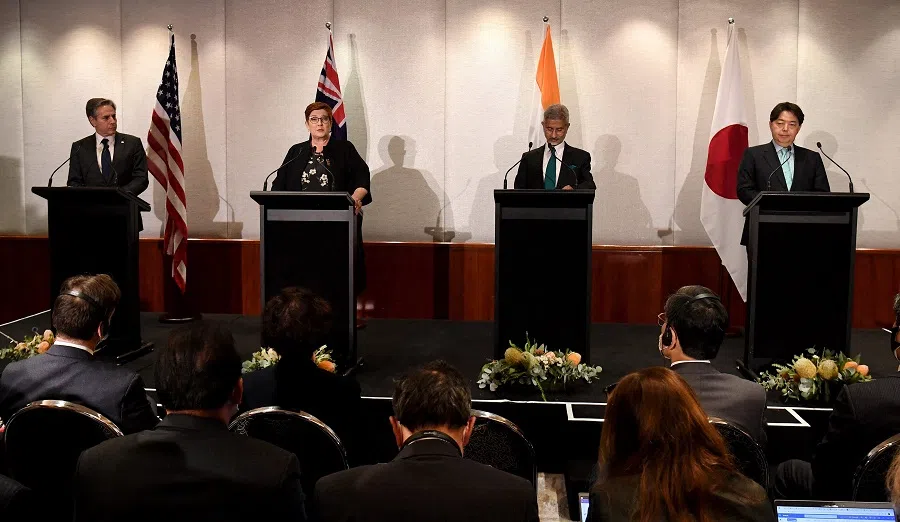
In the last few years, Asia has seen the creation of new geopolitical frameworks. The Quadrilateral Security Dialogue or the Quad brings together Australia, India, Japan and the US. The AUKUS unveiled a nuclear and technological alliance between Australia, the UK and the US. A growing number of former colonial powers of Europe are now articulating Indo-Pacific strategies.
These developments are viewed with hostility by China and great concern by South East Asian nations. All members of the Quad, AUKUS, and European powers emphasise the centrality of the ASEAN for securing the region. Yet, there is no denying the question marks over the ability of ASEAN and the regional institutions that it has built over the last five decades to really manage the unfolding rivalry between China and the West.
But the efforts are likely to continue as the contradictions between the West and the Sino-Russian alliance intensify and weaken the power of multilateral institutions.
China and Russia strengthening spheres of influence
Meanwhile, China and Russia are building their own regional and global institutions. Beijing and Moscow developed the Shanghai Cooperation Organisation in 2001 to limit the US influence in Central Asia. Russia, China, India and Brazil met as the BRIC countries in 2006 and later BRICS with the addition of South Africa to counter the dangers of a US-dominated world.
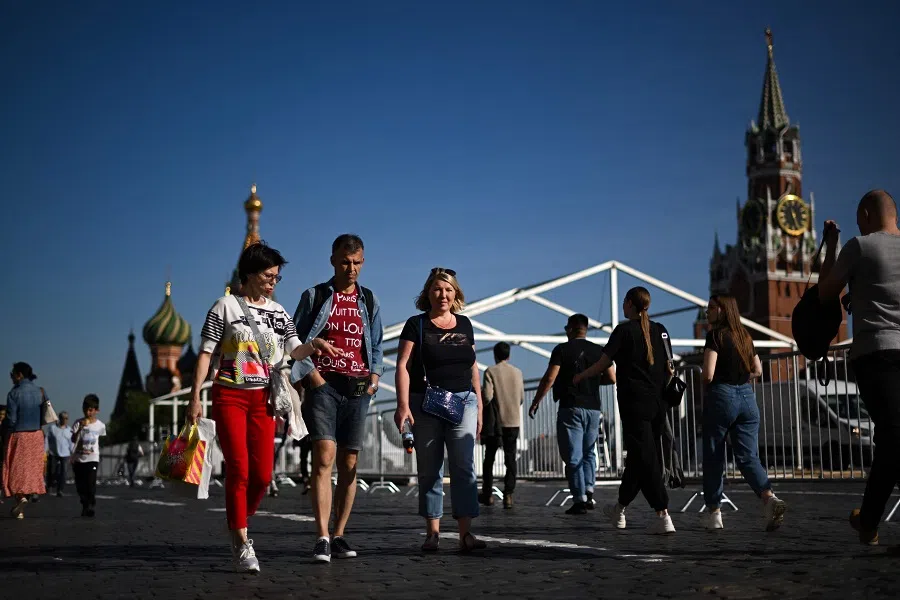
There is now talk of BRICS inducting new members and developing alternatives to the current US dollar-dominated financial system. The West too is debating the expansion of the G7 forum that brings together the seven leading industrial nations - Canada, France, Germany, Italy, Japan, UK, and the US. Moscow was once part of the G8 forum, but has been suspended indefinitely in 2014, following the Russian invasion of Crimea. China is not part of the forum. There has been talk about bringing Australia, India and South Korea into the G7. The US and its allies are also debating the formation of new technological coalitions and resilient supply chains among trusted partners.
Both the efforts carry their own contradictions. For example, India's multiple problems with China have complicated the effort to build credible coalitions among the BRICS. The divergence between Japan and South Korea and other factors have stalled plans to turn the G7 into a potential D10 of democracies. But the efforts are likely to continue as the contradictions between the West and the Sino-Russian alliance intensify and weaken the power of multilateral institutions.
The geopolitical probing of each other's spheres of influence could lead to proxy wars and interference in the internal affairs of the contested zones.
A very different world
This world will be very different from the one we have gotten used to in the last three decades; it does bear some similarities to the Cold War era when the West and Soviet Union occupied different economic zones. But unlike the Soviet Union, China is now part of the global economy and is the second largest. Even partial economic decoupling between the West and China, will have huge costs for the entire world.
We can speculate on change at three levels. One is the potential for growing domestic instability in both the global south and the north amid the sharpening economic crises triggered by Russia's war in Ukraine in the heart of Europe, and the increasing likelihood of a US-China confrontation in Asia. This in turn might make it hard to restore the post-Washington consensus on economic globalisation and great power cooperation.
Second, amelioration of the current conflict is becoming harder amid the ideological dimension being added to the conflict by both sides. The US formulation of "democracies versus autocracies" and the Sino-Russian claims on the collapse of the liberal democratic model will add to the polarising tendencies in the world today.
Although conventional wisdom bets that it is possible to avoid choices, geopolitical and geoeconomics competition are likely to compel many states to make choices - declared or undeclared.
Third, the search for spheres of influence will inevitably intensify and neither side is likely to acknowledge, let alone accept, the other's sphere of influence. The geopolitical probing of each other's spheres of influence could lead to proxy wars and interference in the internal affairs of the contested zones.
Asia has benefited enormously from the extended peace among great powers and reaped the gains of prosperity generated by US-China economic integration. It now has a wrenching time coping with renewed great power conflict and economic nationalism among the major powers.
Asia will also be under growing pressure to choose between the competing minilateral coalitions being developed by the rival great powers amid the breakdown of multilateralism and weakening global and regional institutions. Although conventional wisdom bets that it is possible to avoid choices, geopolitical and geoeconomics competition are likely to compel many states to make choices - declared or undeclared. Optimists, however, do see possibilities for competent internally coherent states to benefit from renewed great power competition by effective bargaining with both sides.
Related: [State of our world] China's future in a politicised world | [State of our world] From Three Worlds to Four: Mao's revised theory of an emerging global order? | [State of our world] Is the world really heading into disorder? | Three big changes in China-US competition after Pelosi's Taiwan visit | Russia-Ukraine war: Impacts on global supply chains and China-Ukraine relations | Indonesia's G20 presidency: Carving out a path for developing countries' representation | G7's global infrastructure and investment drive: Not so attractive for Southeast Asia | Can the world survive these six crises?
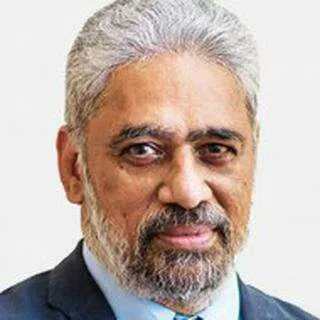




![[Big read] When the Arctic opens, what happens to Singapore?](https://cassette.sphdigital.com.sg/image/thinkchina/da65edebca34645c711c55e83e9877109b3c53847ebb1305573974651df1d13a)